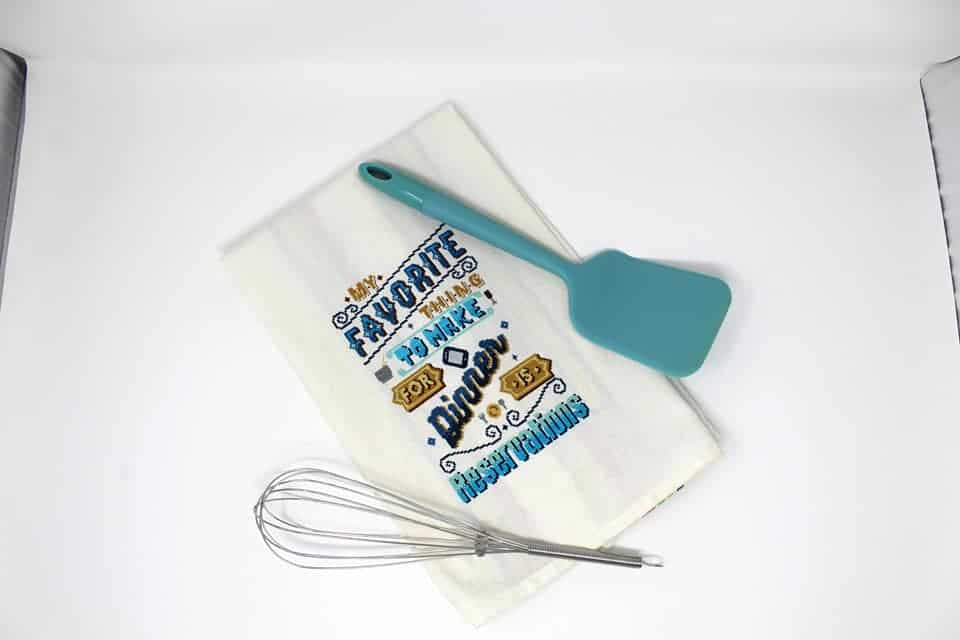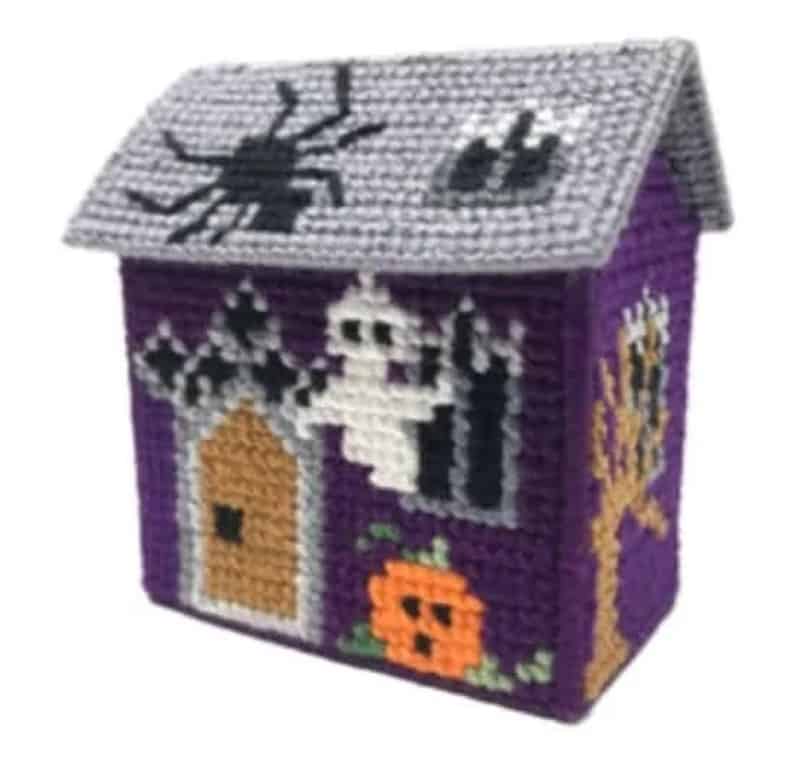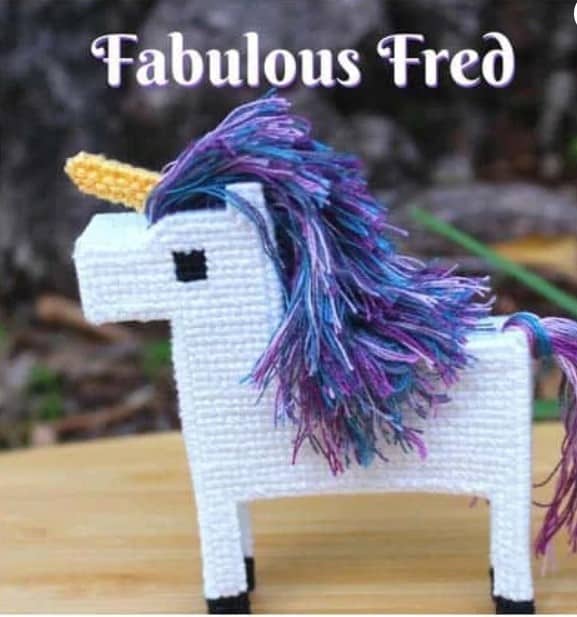When you create an embroidery or needlework project, you’ll also want to display them in a way that allows you to enjoy them, and maybe even to use them. Some types of needlework are meant to be used and some are meant for looking at, so I got some of the Artisan Shopping Directory members who do needlework to show me some of their embroidery and needlework display ideas.
As a general rule, the way that embroidery and needlework should be displayed will depend on whether it’s a decorative or a utilitarian piece. If the artwork is intended for display and meant to be an heirloom, it should be displayed using archival materials in order to preserve it. If it’s meant as a utilitarian object that will be handled and used, it should be cleaned on a regular basis, but doesn’t need to be handled as delicately.
Our members display and use their embroidery and needlework in multiple ways, so read on to see some examples!
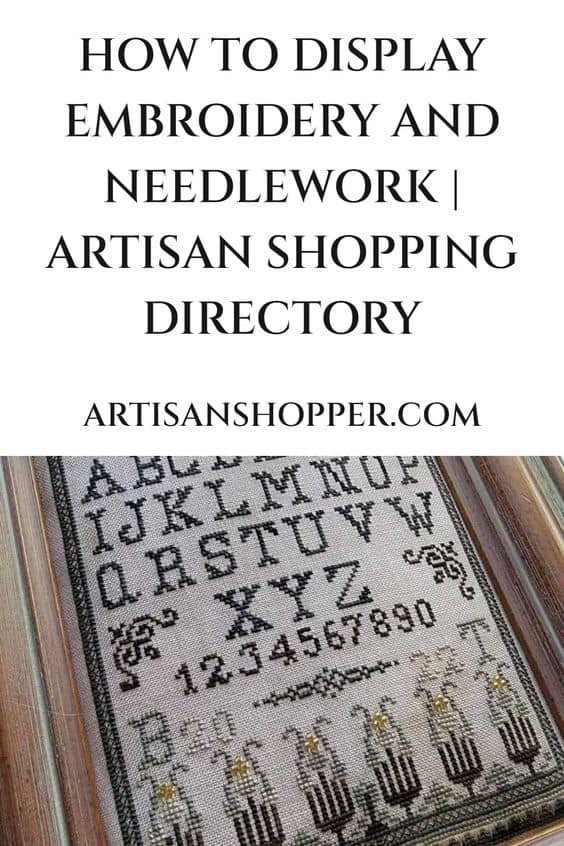
Table of Contents
- How to frame a piece of needlework.
- How to display needlework that you also use.
- How to display needlework pieces that are also meant to be used.
Some of the links in this article are affiliate links that will pay a small commission if they’re used to purchase something. To see the entire affiliate policy click here.
How to frame a piece of needlework.
To frame a piece of needlework you can either keep it casual by framing it with an embroidery hoop, or you can use archival materials to preserve the piece. Archival framing will keep the artwork pristine for decades because it keeps acids and UV light away from the fabric and maintains the colors in the needlework. A casual frame won’t protect the piece from light, but may be more in line with the design of the piece.
Sarah, owner of Notorious Needle, has a tutorial on how to frame a cross stitch piece using an acid-free sticky-back mounting board: Framing Cross Stitch
She also has some videos showing how to do some simple embroidery hoop framing techiniques, including this one:
Alexandra, owner of Allie Bee Candle Co , says that she displays her embroidery in the hoop that she made it in by hanging in on the wall! That’s the easiest way to go if you ask me.
, says that she displays her embroidery in the hoop that she made it in by hanging in on the wall! That’s the easiest way to go if you ask me.
Birgit, owner of The Wishing Thorn , says that she has 50+ years of stitching in her home and challenged me to ask her about needlework because she probably wouldn’t stop talking!
, says that she has 50+ years of stitching in her home and challenged me to ask her about needlework because she probably wouldn’t stop talking!
She has a lot of examples of archival framing for her heirloom projects, and gave me an explanation of the process.
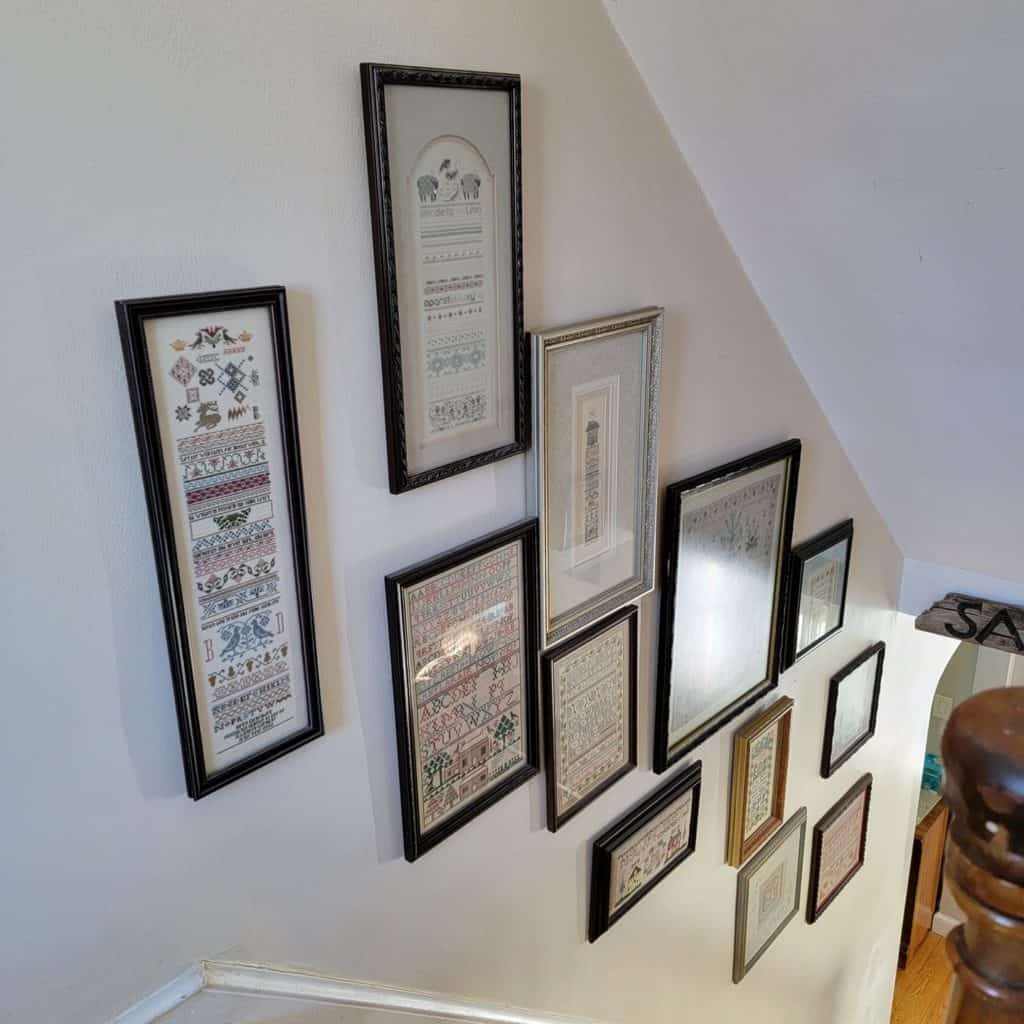
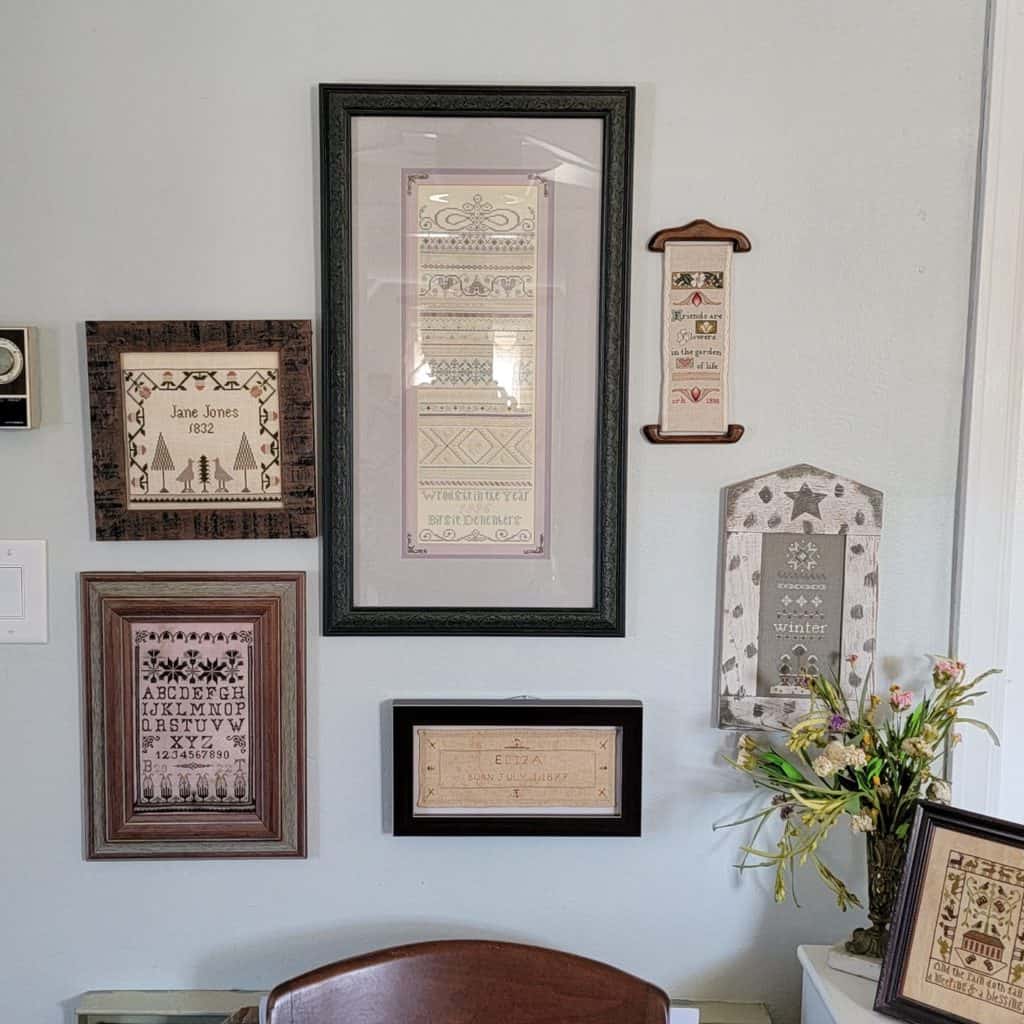
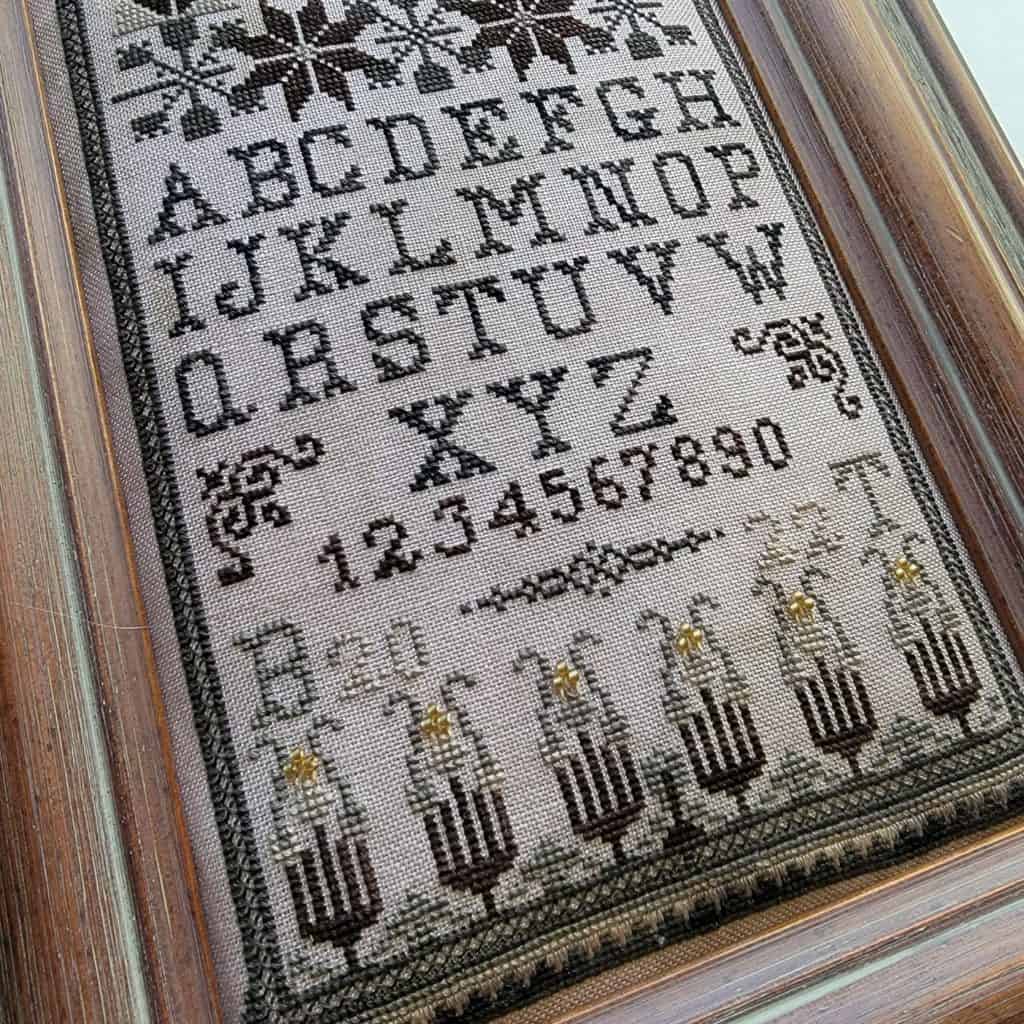
Birgit says “Almost all my stitching is framed on archival mat board and UV-Filter ArtGlass with spacers to keep the needlework off the glass. They are hand-stretched with linen thread around White acid-free archival mounting foam board. Then closed up with paper backing to prevent dust.
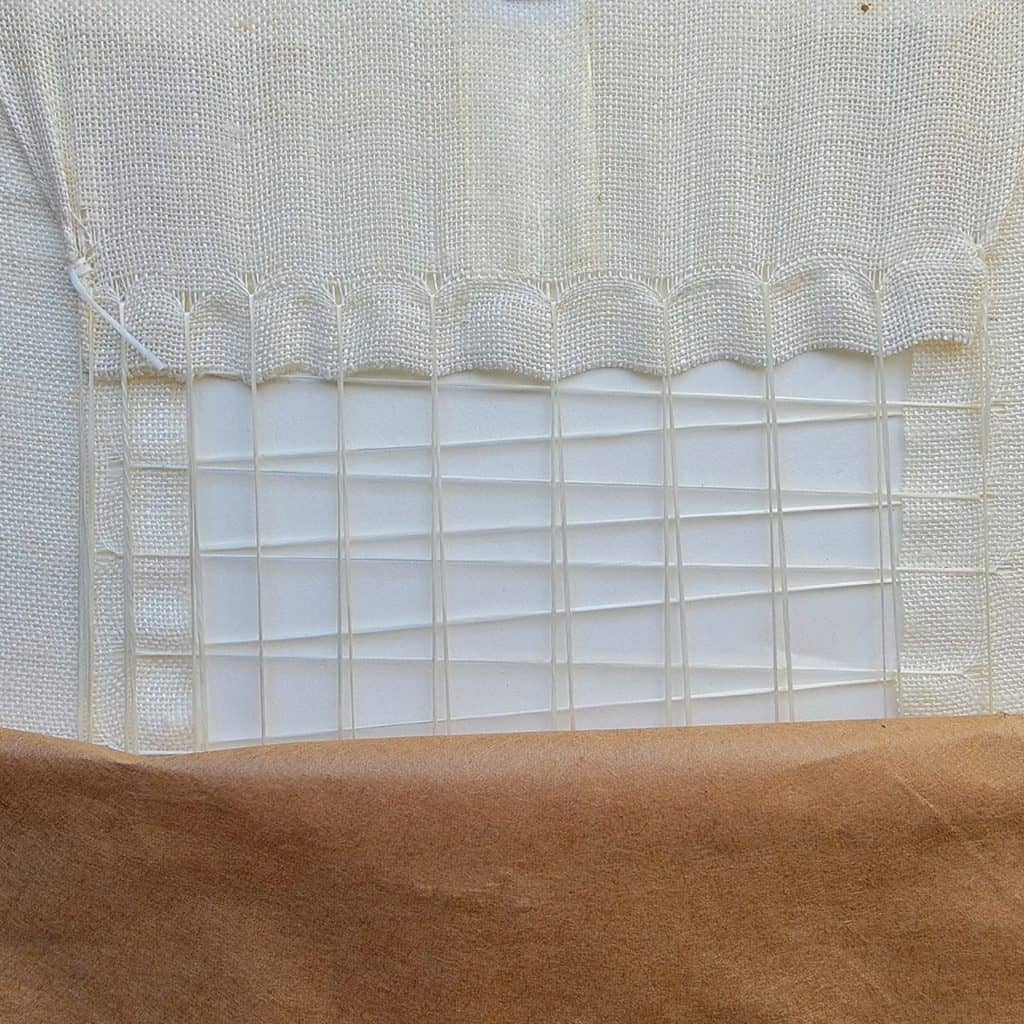
“As I add antique samplers into my collection I always take everything apart and reframe, most of the time I can’t use the frame as it isn’t deep enough for spacers. I make a little pouch and add the handmade nails and any other bits and bobs and info and seal into the back of the frame.”
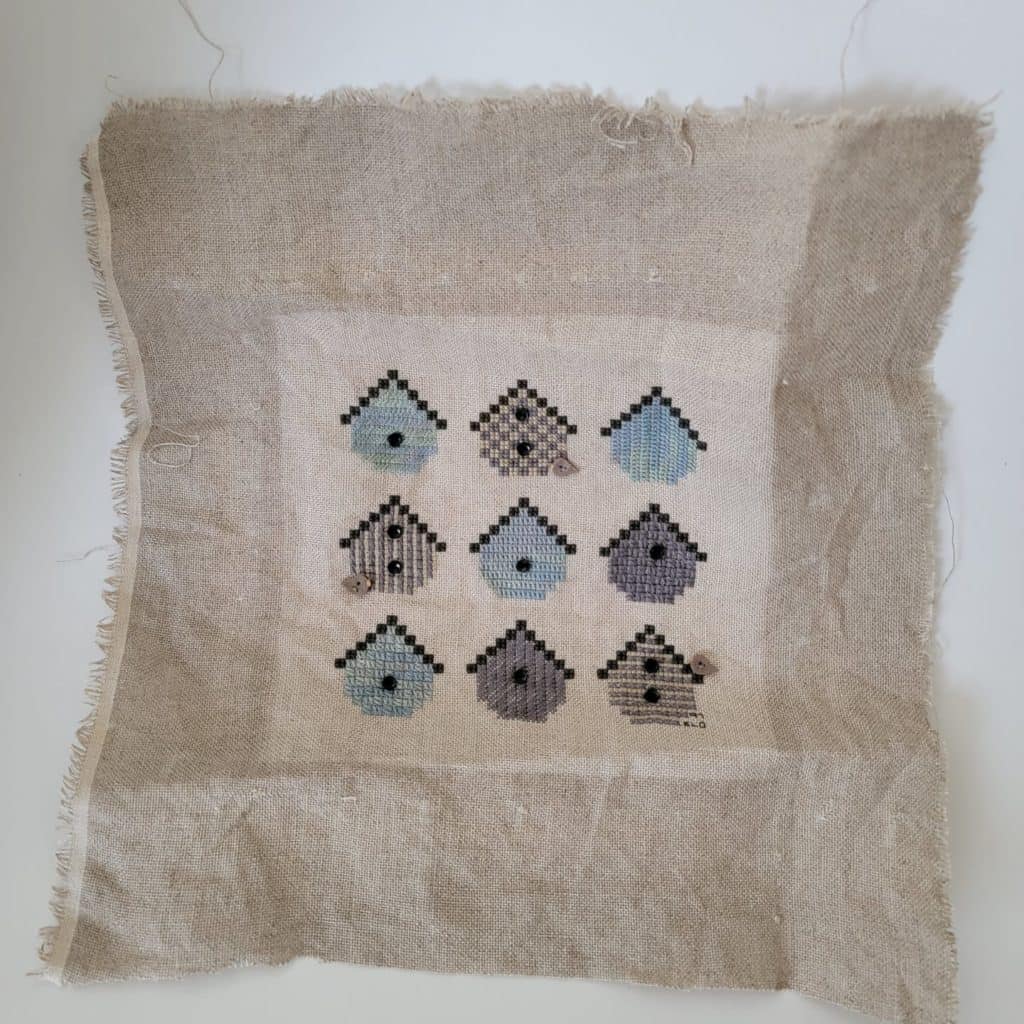
She sent along this photo of a piece of needlework that hadn’t been framed with UV glass to protect the fabric… “The picture above illustrates what happens to stitching not properly framed. The dark color is what the fabric should be, the light is all bleached out over the years…If you go through the trouble of stitching an heirloom piece it should be treated as such.”
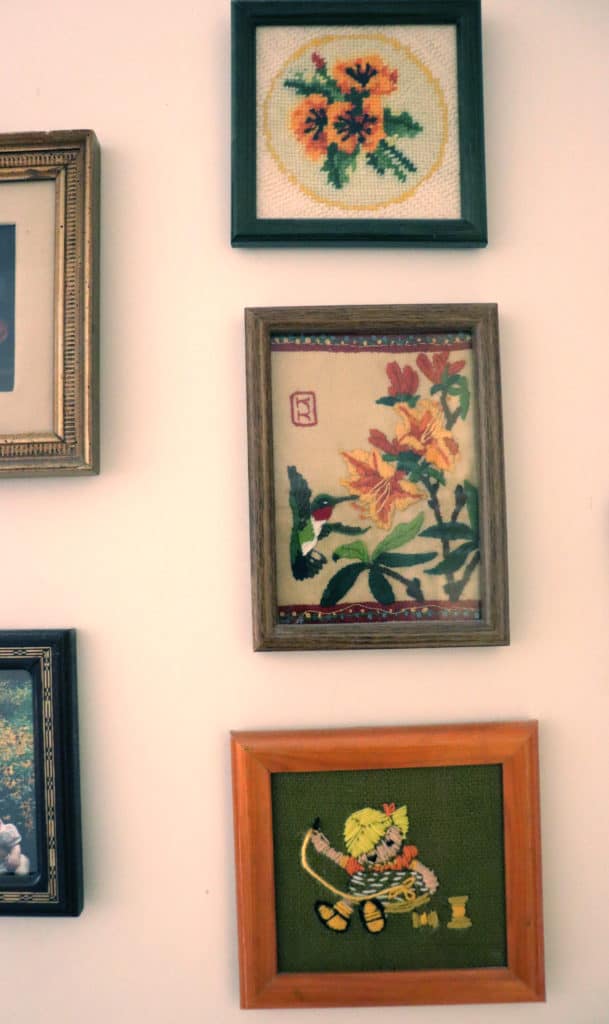
After that, I’m slightly terrified to post these photos because I’m afraid Birgit will come to my house to smack me. However, these little needlepoint and embroidery pieces were things that I made when I was a kid, so I’m not too concerned about the heirloom quality.
Some links in this article are affiliate links, which will pay a small commission at no cost to you if you click and then purchase something.
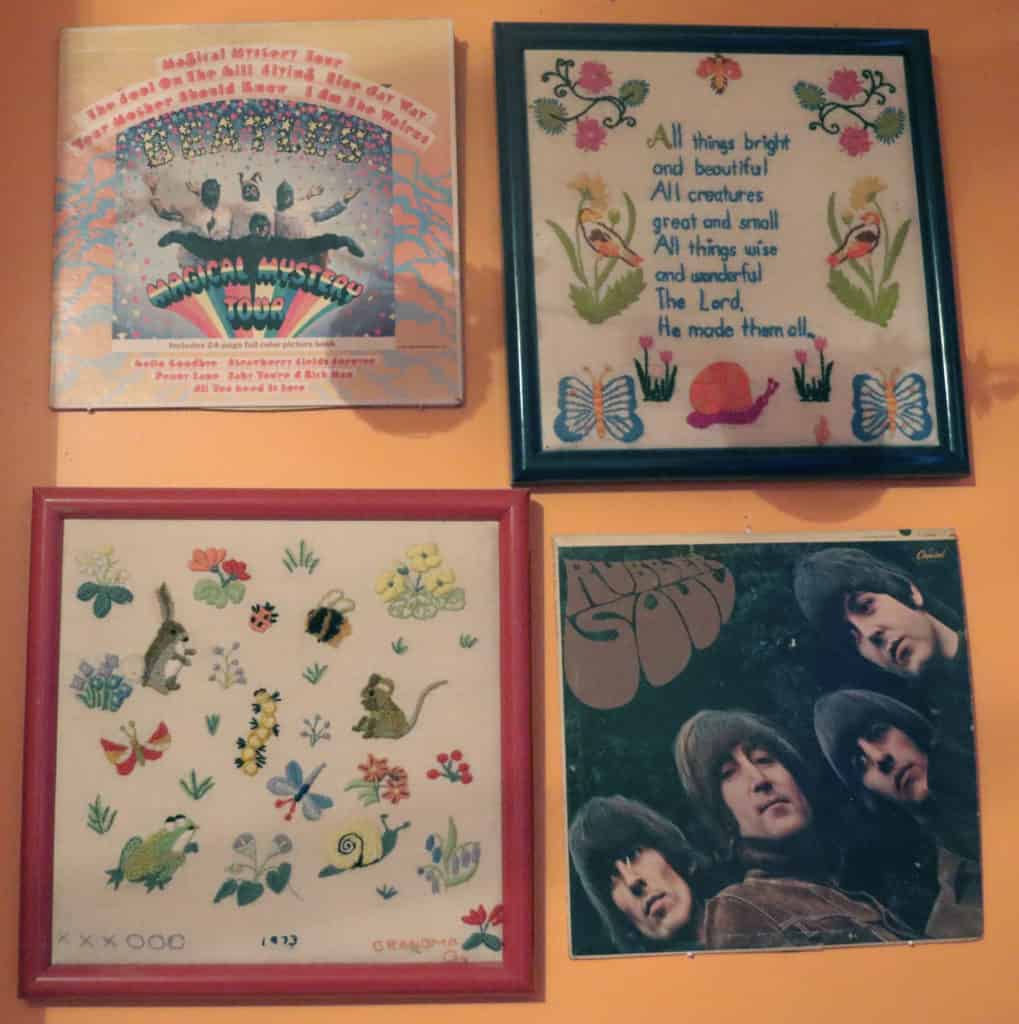
These were some framed embroidery pieces that my Grandmother made, and my daughter paired them with some Beatles album covers. This is clearly a more casual presentation, but it’s appropriate for a teenage girl’s bedroom.
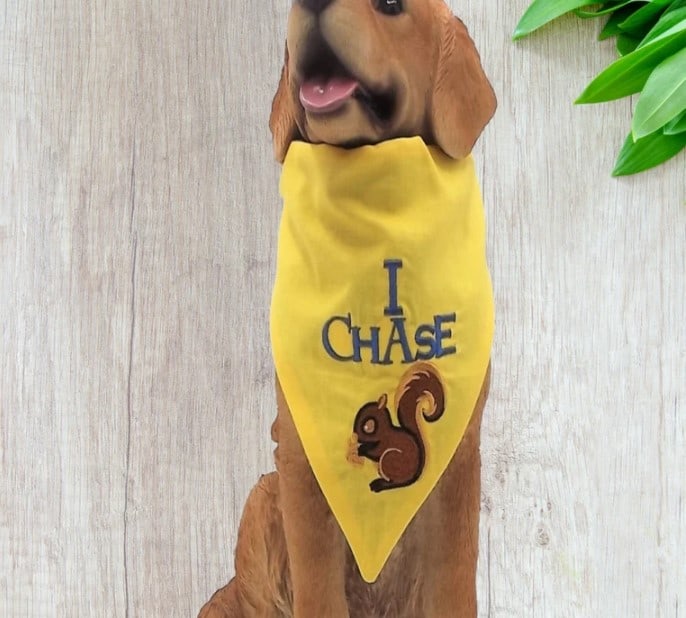
Georgia, owner of Scamp and Friends , says that her mother displayed her counted cross stitch framed and matted. However, Georgia has a lot of functional embroidered items including cork purses, computer bags, wall hangings, lap robes, baby quilts, and dog bandanas.
, says that her mother displayed her counted cross stitch framed and matted. However, Georgia has a lot of functional embroidered items including cork purses, computer bags, wall hangings, lap robes, baby quilts, and dog bandanas.
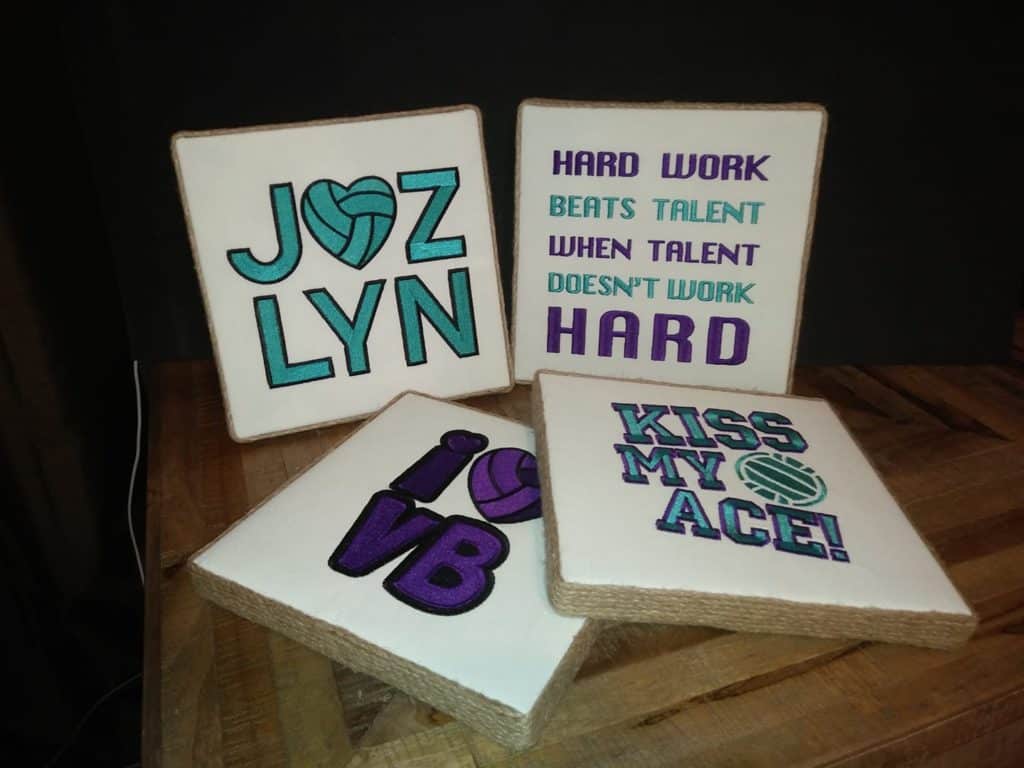
Joanne, owner of Krysallyss Kreations , says “I display and gift my embroidery in many ways, pillows, bags, towels but I also wrap canvases that can be hung or shelf sitters.”
, says “I display and gift my embroidery in many ways, pillows, bags, towels but I also wrap canvases that can be hung or shelf sitters.”
This leads me to the next category of how to display needlework, which is how to show off your more functional embroidered or needlework items.
How to display needlework that you also use.
Some machine-embroidered items are on display by virtue of being used on a regular basis, like monogrammed towels, hats, or dog bandanas. Others are used occasionally, like machine-embroidered blankets and baby quilts, and they can be displayed as room decor when they’re not being used.
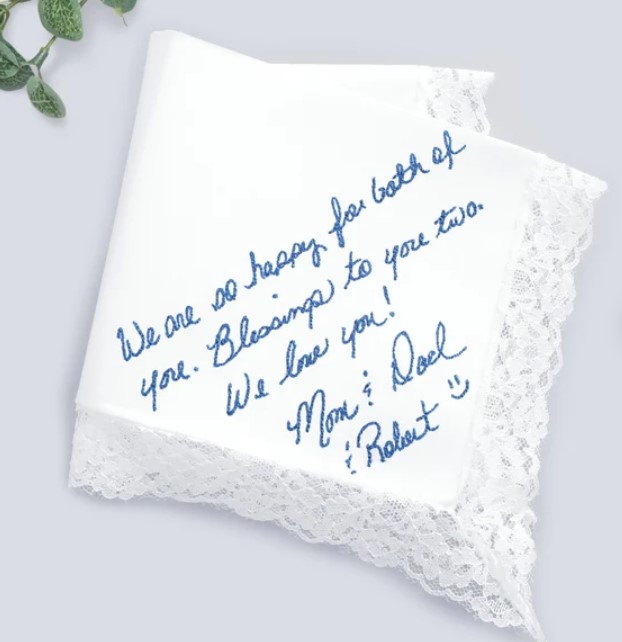
Catherine, owner of Memory Thread Co , says “I would say that you don’t have to leave embroidery to be displayed in a static way. It doesn’t just have to be hung on a wall. Many of my products are items that you can carry with you – handkerchiefs or patches to be sewn into clothing.”
, says “I would say that you don’t have to leave embroidery to be displayed in a static way. It doesn’t just have to be hung on a wall. Many of my products are items that you can carry with you – handkerchiefs or patches to be sewn into clothing.”
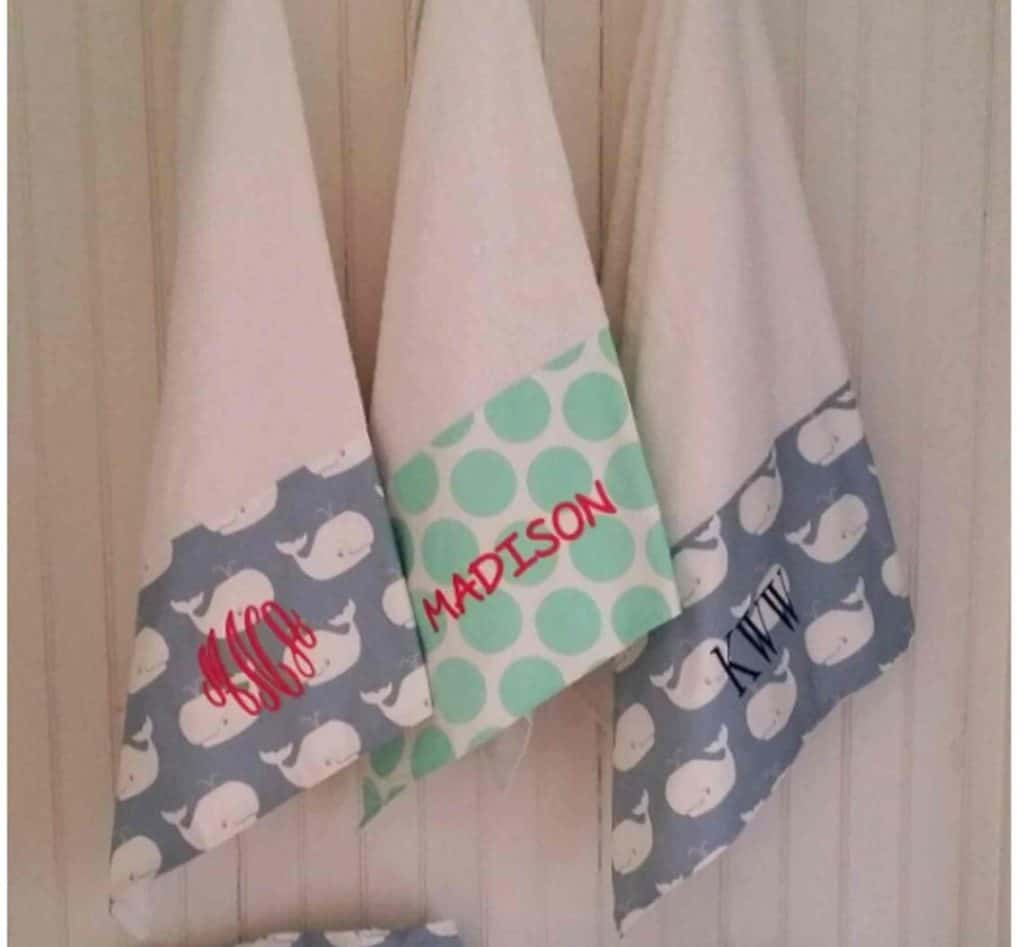
Becki, owner of Kailey’s Monogram, uses her machine embroidery as home decor. She says “For my totes I hang them on a staircase spindle, beach totes and hats on an outside rocker, shower caddy tote on a riser in my bathroom, blankets folded and my hardwoods as a backdrop, Easter baskets on steps with eggs and grass, kitchen towels on the counter with mixer and cookie cutters, and shell totes on my patio with seashells.”
You can also use needlework to create 3D small decorative items using a plastic mesh, like these kits from Notorious Needle. Sarah says “My personal favorite is 3D embroidery like cross stitch and needlepoint, where the embroidered object stands alone. It can be displayed in a case, on a shelf, or even played with.”

Speaking of playing with things, Becky of Becky Sue’s Creations does custom embroidery on stuffed animals, so the toy can be displayed in the baby’s room, then played with later.
In between the formal display methods for heirloom pieces, and the more casual display methods, there are also more heirloom projects that are also used around the house. Those can be displayed “in use” but should also be handled to preserve them.
How to display needlework pieces that are also meant to be used.
For handmade needlework pieces that are also meant to be used, you need to balance displaying them with caring for them to extend their lives. Common items in this category would be things like pillows, Christmas stockings, quilts, and embroidered tablecloths and runners.
I have a tablecloth that my grandmother embroidered, and at some point someone tossed it into the dryer and shrunk it. So that was a care fail, and I don’t advise that you do that.
You can display and care for needlework in ways that preserve it and don’t shrink it!
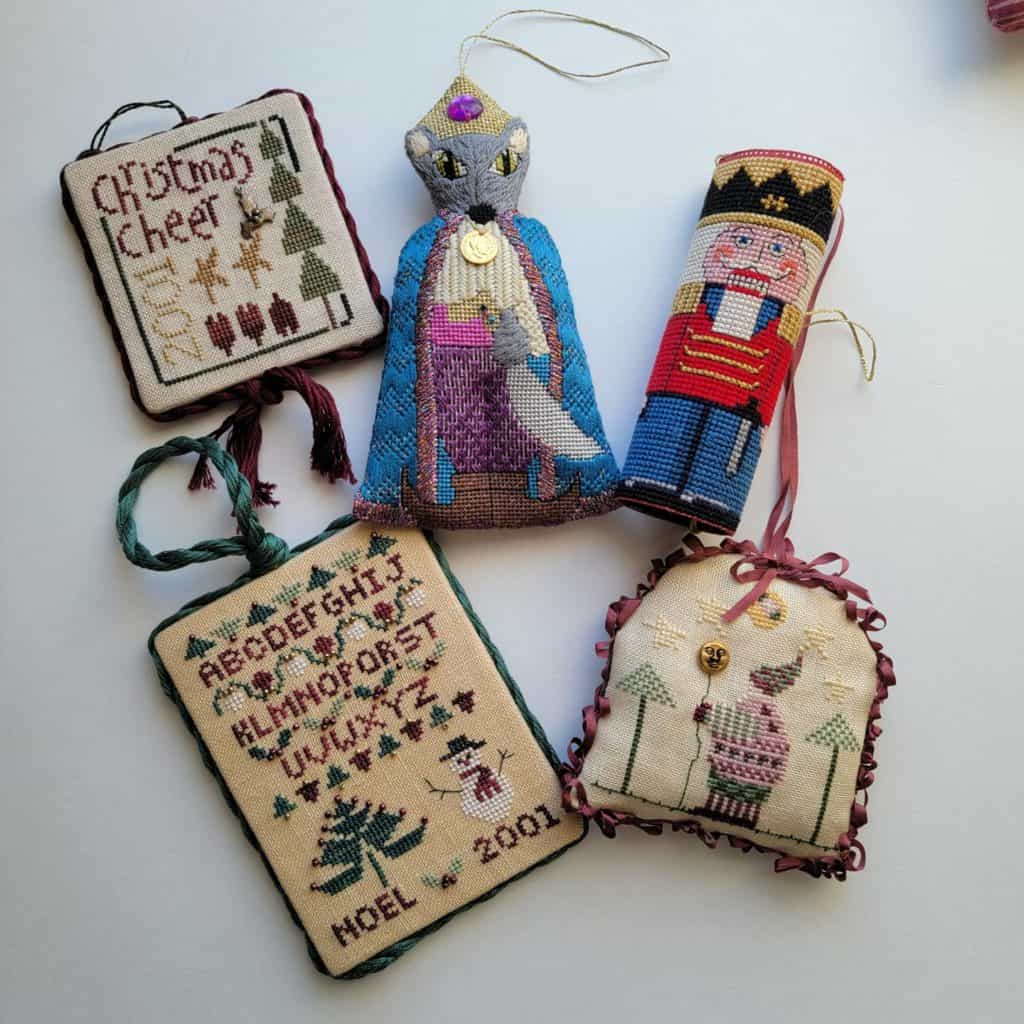
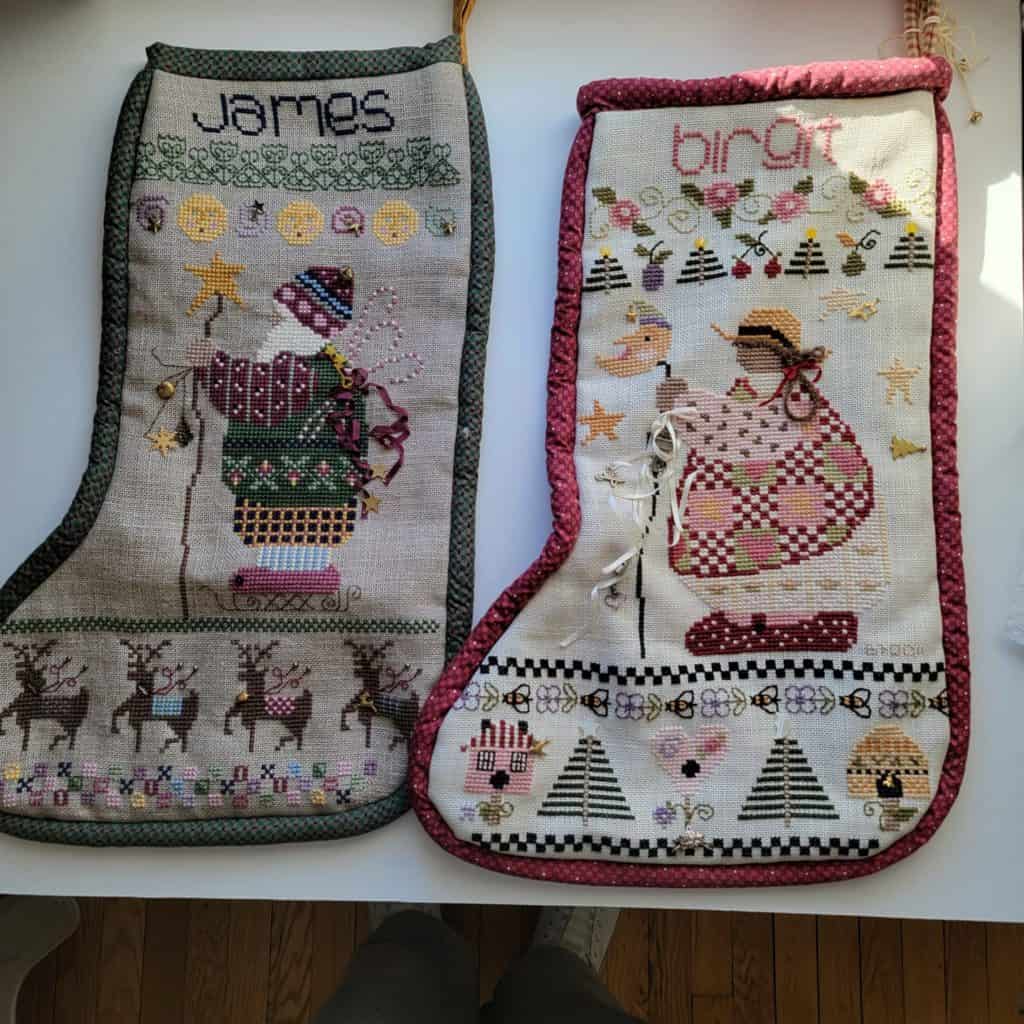
Birgit has these Christmas stockings and ornaments, and says that the Nutcracker ornaments are 40 years old. They still look great because they’ve had proper care! (i.e. no dryers.)
She says “The stockings are always wrapped up carefully in acid-free tissue paper after use as well as the ornaments. They have lasted for decades.”
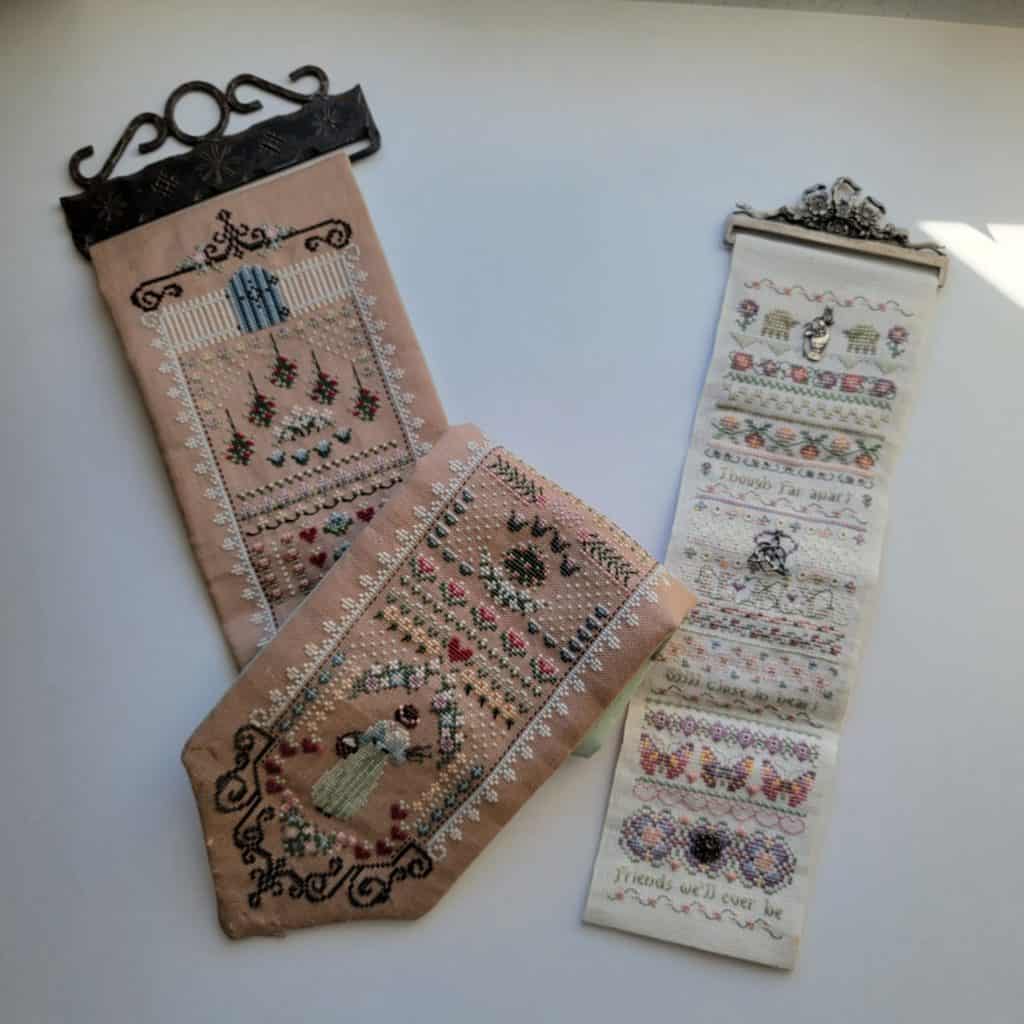
She also owns these bell pulls, which would have received a fair amount of use in the era when they were actually used for bells. I’m not sure whether these are vintage or something that she made, but these would be nice to display even if you don’t have servants to summon…
When you’re displaying vintage needlework pieces, it’s best to go with the more archival methods, but for things that were considered “daily use,” you might want to display them in a way that reflects their original use.
Just be careful that the way that you show these pieces off protects them and doesn’t speed up any deterioration of the fabrics!

